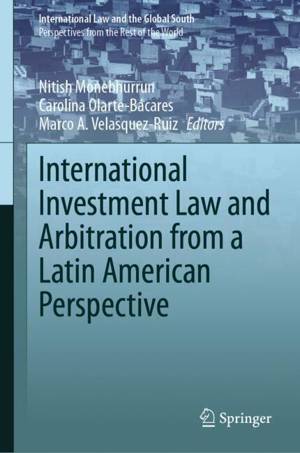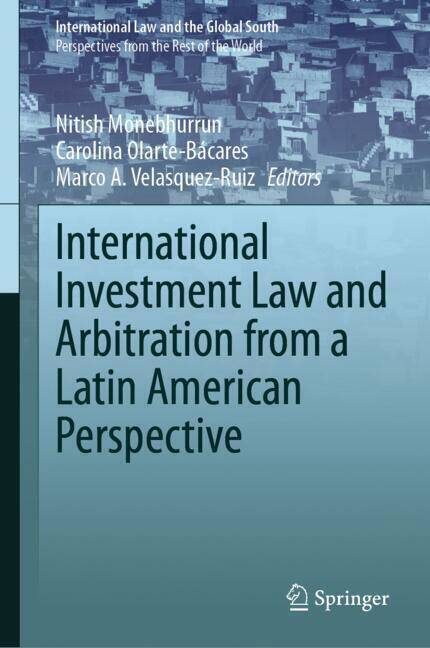
En raison d'une grêve chez bpost, votre commande pourrait être retardée. Vous avez besoin d’un livre rapidement ? Nos magasins vous accueillent à bras ouverts !
- Retrait gratuit dans votre magasin Club
- 7.000.000 titres dans notre catalogue
- Payer en toute sécurité
- Toujours un magasin près de chez vous
En raison de la grêve chez bpost, votre commande pourrait être retardée. Vous avez besoin d’un livre rapidement ? Nos magasins vous accueillent à bras ouverts !
- Retrait gratuit dans votre magasin Club
- 7.000.0000 titres dans notre catalogue
- Payer en toute sécurité
- Toujours un magasin près de chez vous
International Investment Law and Arbitration from a Latin American Perspective
147,95 €
+ 295 points
Description
The book brings to light how Latin American states have traditionally stood before the field of International Investment Law and Arbitration. It delves into their posture of resistance to critically examine how their perspective has gradually changed and how they have adapted and molded their investment agreements so as not to leave their position as players in the field of International Investment Law. Many Latin American states have appeared as defendants before international investment tribunals and some of these, like Venezuela, Bolivia or Ecuador, have denounced their international investment agreements. Deeming the law field as imbalanced, they have looked for alternatives to continue providing legal protection to foreign investors while protecting their right to regulate in the name of public interest. Some interesting investment agreements models, sometimes of a different ilk, have consequently flourished and have arrested the attention of those studying or working with international investment law.
The main objective of this book is to critically discuss how Latin American states have accepted, resisted, or adapted themselves to international investment law and arbitration. Accordingly, the general connection between these states and international investment law are explained in an introduction which examines the general trends as per which Latin American states have offered a legal protection to foreign investments. The first part enters the merits of where international investment law and arbitration stand in some Latin American states whereby the experience of Brazil, Chile, Argentina, Venezuela, and Uruguay are discussed. The following parts explain the trends in international investment law and arbitration in Latin America. These trends are namely related to dispute settlement and governance, to the connection between investment law and human rights and finally to regionalization. In these parts, the experience of states like Brazil,Colombia, Peru, and Mexico are perused.
The main objective of this book is to critically discuss how Latin American states have accepted, resisted, or adapted themselves to international investment law and arbitration. Accordingly, the general connection between these states and international investment law are explained in an introduction which examines the general trends as per which Latin American states have offered a legal protection to foreign investments. The first part enters the merits of where international investment law and arbitration stand in some Latin American states whereby the experience of Brazil, Chile, Argentina, Venezuela, and Uruguay are discussed. The following parts explain the trends in international investment law and arbitration in Latin America. These trends are namely related to dispute settlement and governance, to the connection between investment law and human rights and finally to regionalization. In these parts, the experience of states like Brazil,Colombia, Peru, and Mexico are perused.
Spécifications
Parties prenantes
- Editeur:
Contenu
- Nombre de pages :
- 271
- Langue:
- Anglais
- Collection :
Caractéristiques
- EAN:
- 9783031493812
- Date de parution :
- 02-04-24
- Format:
- Livre relié
- Format numérique:
- Genaaid
- Dimensions :
- 156 mm x 234 mm
- Poids :
- 580 g

Les avis
Nous publions uniquement les avis qui respectent les conditions requises. Consultez nos conditions pour les avis.





